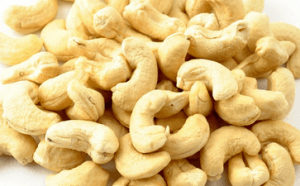Ghana non-traditional exports record $2.5b in 2017
 The country’s non-traditional exports (NTEs) earnings increased from $2.463 billion in 2016 to $2.557 billion, representing an increase of 3.8 per cent, according to the Ghana Export Promotion Authority (GEPA).
The country’s non-traditional exports (NTEs) earnings increased from $2.463 billion in 2016 to $2.557 billion, representing an increase of 3.8 per cent, according to the Ghana Export Promotion Authority (GEPA).
The analysis of the statistics of the NTEs for the past five years (2013-2017) show that the sector grew at an annual average of 1.22 per cent and contributed 18.37 per cent to the total national merchandise exports in 2017.
Some of the non-traditional exports include: cocoa products, fruits, vegetables, creative arts and crafts, cashew nuts, medicinal plants, beads, ceramic products,
Netherlands was the lead market destination for Ghana’s non-traditional exports, contributing $382.6 million in 2017, an increase of 153.48 per cent over 2016 earnings followed by Burkina Faso with $206,089,622, also as the lead importing country in the ECOWAS and Africa.
The top 10 NTEs markets destinations for Ghana are: Vietnam-$195,432,509 (third), United Kingdom-$179,553,946 (fourth) Germany-$155,927,838 (fifth),Togo-$138,032,270 (sixth), France-$118,938,089 (seventh),USA-$114,776,901 (eight), India-$110,940,446 (ninth) and Belgium-$81,011,046 (10th).
Addressing exporters and stakeholders at the 78th National Exporters’ Forum in Accra on Wednesday, Mrs Afua Asabea Asare, the Chief Executive Officer of the GEPA, said the high performance of the NTEs in 2017 was largely due to increased exports in cocoa products, which rose by 60.5 per cent from $542.3 million in 2016 to $870.2 million in 2017.
She said the high demand of Ghana’s exports on the global market in recent times would significantly contribute towards achieving government’s ambition of 20 per cent year-on-year growth, which would help to achieve the $5.3 billion value by 2021.
In view of the positive trend for Ghanaian products on the global market, Mrs Asabea Asare said there is the need for Ghanaian exporters to develop new markets globally and increase their export-base in order to reap the required benefit.
“Many countries have made significant strides in their economic development on the back of exports. The vital role of exports to the economy of Ghana cannot therefore be overemphasized, particularly at a time when the cedi is under considerable pressure from the major trading currencies.
The signal is clear that we have to work harder to support the export sector to grow and generate more foreign exchange while assisting to increase the current trend of import dependency through import substitution,” she said.
The National Exporters Forum since its inception in 1987 serves as a suitable platform for interaction between exporters and other stakeholders.
It also helped to identify and address constraints in the non-traditional export sector and has been an avenue to inform exporters and stakeholders about export activities and programmes in the NTE sector for the year.
Mr Carlos Kingsley Ahenkorah, a Deputy Minister of Trade and Industry, used the occasion to launch the Buyer Portal of the Market Hub, which would serve as a one-stop shop with resources and information on international trade for exporters.
The portal will address various market access issues that confront the export community and ensure integration, dialogue, relationship building and simplicity between exporters and buyers.
It will enable exporters to easily find buyers and suppliers for their products, ensure market accessibility, know critical market access requirements, certification and standards, as well as stay tuned into international trade news and events and showcase their companies through the online exporter directory.
Interested exporters could access the portal through www.gepaghana.org which is designed to provide useful links and information on exporter companies to potential importers globally.
Source: GNA
